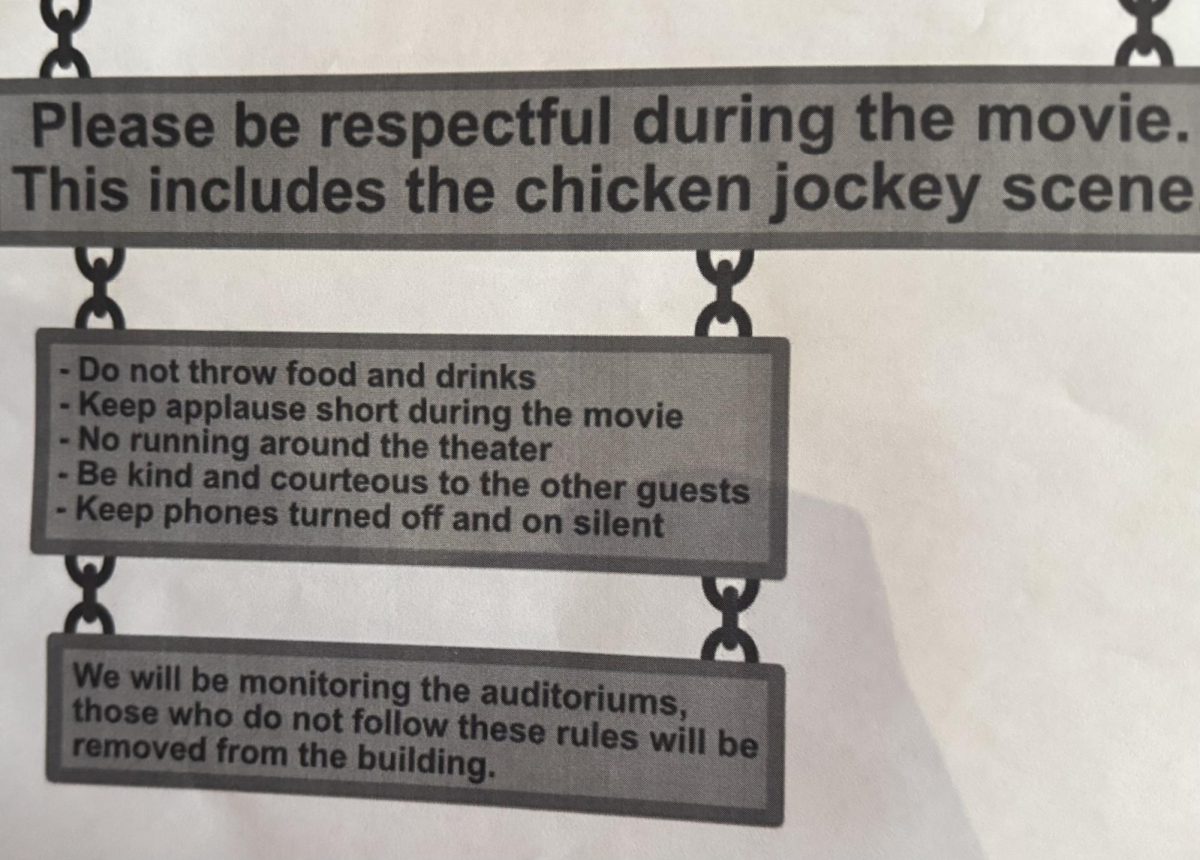Recently, an op-ed I wrote titled “Angry counter-punch” received two responses that ran in the October 18 issue. These responses were quite lucid, and came from people that I revere as journalistic colleagues (Danny Surman) and close friends (Elliott Averett).
These two responses have ensnared my mind, Elliott’s in particular, for the past couple of weeks, prompting
introspection. I’ve realized that what made Elliott’s response so gripping to me was precisely its origin— that it came from the mind and mouth of one I’ve long considered a fast friend.
I confess, in the moment in which “Angry counter-punch” was born, I was enraged, and continue to face a rage and discomfort every time I revisit the topic and this conversation. Honestly, these feelings scare me, sap me and contribute to why it has taken me longer than a week to respond like I had promised I would. And now, even if it won’t be perfect, even if I’m not quite ready, I feel like I really must write, not only for the sake of discourse but for the sake of a friendship as well.
To start, I want to clarify aspects of “Angry counter-punch.” I intended to connect current campus conversation regarding controversy over MCSG positions to larger concepts and principles that I saw were being ignored. The only person I wanted to speak for was myself, and I wanted to avoid speaking for anyone else by choosing to instead speak about everything, the broad ideas relevant to the matter at hand. As Surman pointed out, my usage of terms like “us” and “them” excluded Jeff Garcia, a person of color with whom I disagreed. I want to apologize to Garcia; I did not mean to question your identity or exclude you from any groups. However, people of color, like any other group, are not homogenous, and I’m not entirely sure it’s fair or sensitive of Surman to toss Garcia’s identity at me as a retort, as if my argument is invalidated because I don’t have every brown dude at Macalester in my corner. This applies to further points that Surman raises that complicate the demographics of those who supported or opposed KWOC’s occupation of Weyerhauser, especially since my article was not really about KWOC at all, or even intended to criticize the administration, specifically.
My article was not was not about debating whether or not rule infraction did occur, or whether or not there should be some sort of due consequence. It was to speak to the tone and nature of the current conversation, and to elucidate hidden complexities concerning rules and governing bodies in our society in general.
One huge emphasis of both responses was on specifics. I feel that the critique that I lacked specific evidence comes from a refusal or inability to read what evidence I included in my piece that was based upon intimate personal understanding and experience (as well as perhaps an oversight of the epistemological flaws of a system that privileges certain types of knowledge over others, but that may be another argument). The brief anecdotal evidence I shared from the lives of myself and my communities should have been enough to prove my argument, which did not intend to address specific instances on Macalester campus, necessarily, but to illustrate that it might not be so far-fetched to consider that rules and their application are rarely ever impartial.
Elliott says that I “conflate Macalester College’s systems and procedures with those of governments and institutions in the world at large. By conflating the two and then pointing out the undeniable injustice in the wider world, they win the argument via obfuscation.” Here, my friend misses the point. Contrary to what you might have been taught, there are no isolated issues in the world: history affects the present every day, what happens on one side of the world bears implications for countries on the other, and issues of race, class, sexuality, gender and identity are not relegated to discussions in the Anerican Studies department and the Department of Multicultural Life but are present in everything— they are just not always acknowledged, and sometimes are even obscured.
I don’t need to convince every knock out there who disagrees with me, or thinks I’m too emotional, or thinks that when people complain of discrimination, they’re just playing some sort of “race card.” But I do want you, Elliott, to at least understand, or attempt to understand, where I’m coming from or what I’m saying, because I believe it’s essential to our friendship. If integral aspects of my worldview and origin story fall outside your zone of credible knowledge, then continuing a friendship would require self-excision on my part, a trauma that I hope to never have to undergo. I implore you to attempt to widen your scopes concerning what might be relevant to political discussions, or the discussion at hand, or to what it means to live in an(other) body.
An image that keeps popping into my head, as we discuss rules and obedience and defiance, is the Chokey. The Chokey, for those who did not grow up as social outcasts in love with Roald Dahl, is from the book Matilda, and is a form of torture devised by the Trunchbull, the malevolent headmistress of Matilda’s school. To ensure obedience, students are placed in the Chokey, a tiny closet with sharp shards embedded in the walls, forcing students to stand straight, at attention, and not move a muscle.
The obvious metaphor is that rules and institutions are Chokeys, in varying degrees. Many might say that Macalester is a relatively spacious, shard-free Chokey. However, the image appeals to me because, for many people who maintain identities and experiences that fall outside of the cultural canon, society, the entire world, feels like a Chokey, with Macalester representing just one spike in the wall that we have to navigate. The argument that if we don’t like Macalester we should simply uproot and spend our consumer dollars at a place more fitting is really weightless, given that everywhere we go is a veritable laser net of rules and regulations, a part of a grand Chokey that has been built over the centuries quite intentionally, by colonialism, sexism, segregation and many other institutions.
It’s dark in the Chokey. Sometimes it’s easy to forget that you’re in one, that everyone is in one. And, without communication and honest listening, it’s nigh impossible to understand what the Chokey is like for someone else, someone whose legacy and body might mean that they are saddled with a differently constructed Chokey.
I understand, Elliott, why it might be easy to say that issues of identity don’t play into this conversation, that this is pure political debate on rules. But if you were to ask me, and pretty much anyone from my family and friends from home, we would say that race, class and other social structures play into literally every issue.
I’m not writing to convince people that certain rules have been applied differently, or unfairly, in the past month or so. I’m writing to say that every rule at every time is suspect, and that if someone is brave enough to speak up and let you know exactly how scary and painful it is inside their specific Chokey, no one else should ever try to negate or invalidate their testimony, to say they’re wrong, their experience is wrong, and key aspects of who they are, how they live, don’t play into a decision affecting their life.
Elliott, big guy, we’ve played Custom Robo till the wee hours of the morning, shared pizzas and spoken over coffee how scary studying abroad will be as the sun rose on the last day of finals. I’d like to think that we understand each other, or at least will always make efforts to. And sometimes that means admitting the existence of phenomena we still don’t fully understand, or might not ever. And it angers and scares me to think you might not be able to do that with me, to understand that the way I see the world is quite literally colored in every aspect by history and identity. Because to have someone I trust and turn to for solace say that I have it wrong about myself, and my community, that we’ve just been hallucinating, or are grasping for fiery rhetoric, just hurts.







Donna Wright • Sep 12, 2019 at 5:31 am
It’s best to participate in a contest for among the best blogs on the web. I will recommend this web site!
Theresa Hunter • Sep 10, 2019 at 10:48 pm
I enjoy you because of all your hard work on this site. My niece takes pleasure in going through research and it’s really easy to understand why. A lot of people hear all of the powerful method you give functional tricks via this website and encourage response from other ones on that content then our own daughter is certainly understanding so much. Have fun with the rest of the year. You are carrying out a remarkable job.
Carolyn Ogden • Sep 5, 2019 at 1:19 am
Great article. I will be dealing with many of these issues as well..